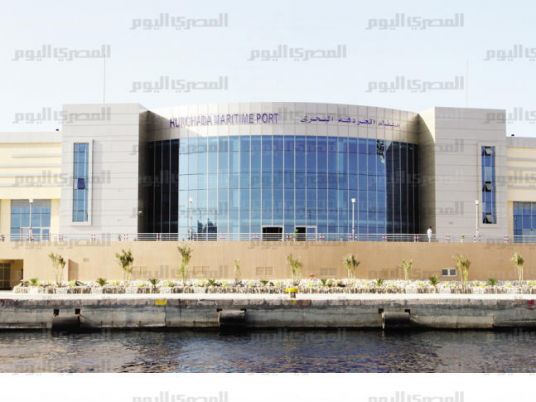
The common practice of renting out public beaches to the private sector in coastal cities has often resulted in pushing lower income families out of an opportunity to enjoy a day at the beach, as private companies often apply entrance fees that only more affluent people can afford.
Within this practice are also the occasions where beachfronts have become restricted to hotel or resort guests.
Residents in coastal, touristic towns say there are few public beaches left for them to use and those that are available lack services, such as lifeguards, umbrellas, chairs and toilets.
In Ras Gharib, on the Red Sea, only one public beach was available to the locals, but after 12 people drowned last summer with no lifeguard on site, the authorities were forced to shut the beach down. The other beaches in the area are mostly occupied by oil companies and are therefore polluted and unsuitable for swimming.
Hurghada used to have 10 public beaches, but they have been rented to private companies, depriving the locals of free access to the waterfront. This phenomenon has carried over to the public beaches in Safaga, Quseir, Marsa Alam, Halayeb and Shalatin.

Here's the beach kids!
Ain Sokhna is yet another costal town where all the beaches over a stretch of 200 kilometers are owned by hotels and compounds, except for one in Adabiya, close to Suez.
Gharib Abdel Samie of the Suez City Headquarters said the entrance fee for the Adabiya beach is only two pounds. “It has cafeterias, lifeguards, an ambulance and chalets for rent at only 100 pounds per day,” he said.
Public beaches have disappeared in Sharm El-Sheikh, Dahab and Ras Sedr. In fact, certain private beaches have annexed natural reserves, such as a beach in Dahab that contains rare plants.
“The Dahab reserve was once protected by the European Commission,” said Mohsen Gafar, a resident of Dahab. “Now it is part of a private beach.”
Over a stretch of 600 kilometers, the beaches of southern Sinai are restricted to tourists and hotel guests, while the ordinary citizen is deprived of them.
Zidane Nafie, head of the “Sons of Sharm El-Sheikh Association,” said the City Council has rented the public beach for LE1.2 million a year. “The entrance fee is LE150 per person,” he said.
Ahmed Atef works in a hotel in Sharm El-Sheikh. He said staff members are not allowed to use the beach. “Where can I take my family if there is no public beach anymore,” he said.
Essam Saad Allah, director of the Ras Mohamed natural reserve in Sharm El-Sheikh, said the entrance fee is only five pounds. “School and university trips are for free,” he said. “Also, the camping area is for free.”
Ahmed Badawi, an expert in beach management, criticized the renting of beaches in auctions to unqualified people. “Beach management is a science studied in Europe, especially maritime activities and beach games,” he said.
Mahmoud al-Sawleya, head of the city of Sharm El-Sheikh, said there are two beaches for the public in the Sharm al-Maya and Naama Bay areas.
Ahmed Hegazy of the Alexandria Headquarters said 11 beaches were rented for three years for LE4.6 million, with an annual increase of 10 percent, in Ibrahimiya, Camp Cesar, Sporting, Sidi Gaber, Montazah, Abu Talat and Agami.
Edited translation from Al-Masry Al-Youm
